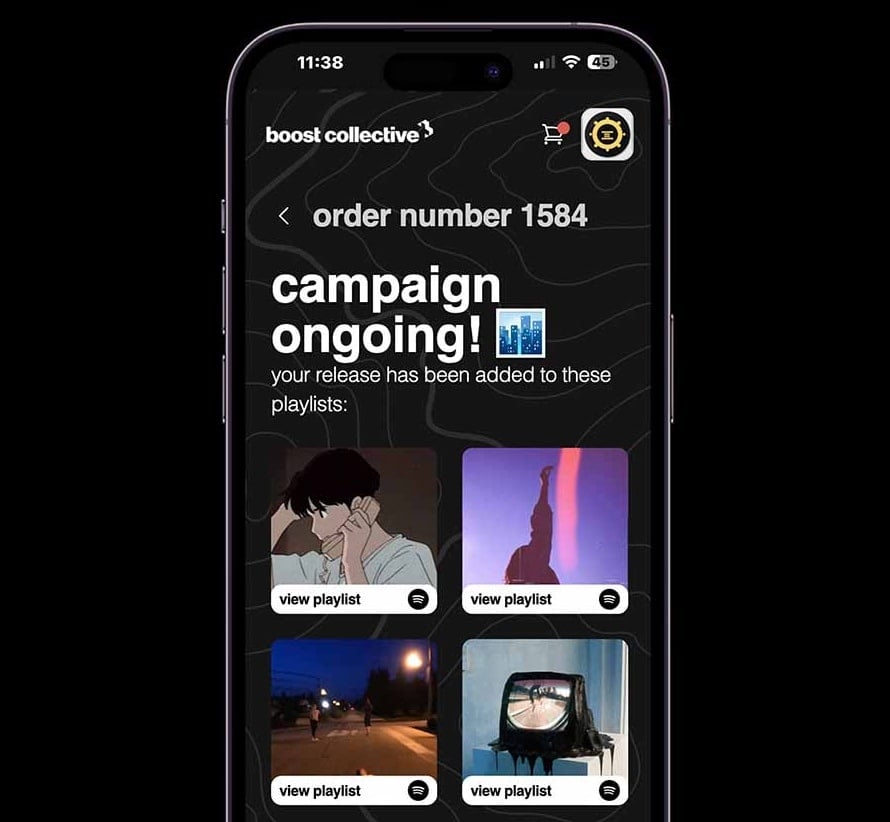Overview
In today's digital age, the social media site has become an essential tool for musicians to connect with fans, promote their music, and build a successful career.
But with so many platforms and strategies still up to date to choose from, where do you even begin?
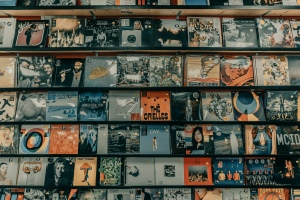
Introduction
Gone are the days when musicians relied solely on traditional social media, as many promotions their channels, to gain visibility.
With the rise of the social media networks, musicians now have the power to reach a global audience directly and engage with fans more followers on a personal level.
However, navigating the world of these social media sites can be overwhelming and confusing for many artists.
If you're a musician looking to harness the power of social media to boost your music business career, you're in the right place.
This complete guide will walk you through everything you need to know about social media for musicians, from choosing the right platforms to creating compelling content and growing your fan base.
Whether you're a seasoned pro or just starting out, this guide will help you master the art of creating content for social media and take your music career to new heights.
Importance Of Social Media For Musicians
Social media has become an indispensable tool for musicians in the modern digital age.
Its importance cannot be overstated, as it offers numerous benefits that can help musicians grow their careers, connect with fans, and establish their brand.
Here are some key reasons why an effective social media strategy is crucial for musicians:
-
Wider Reach and Audience Engagement: Social media platforms allow musicians to reach a global audience instantly. They can share their music, videos, photos, and updates with fans from all over the world. This accessibility can help build a dedicated fan base and increase overall engagement.
-
Promotion and Marketing: Social media provides a cost-effective way for musicians to promote their music and upcoming events. By using platforms like Facebook, Instagram, Twitter, and YouTube, musicians can create targeted advertising campaigns to reach specific demographics, increasing the chances of reaching potential fans and attendees.
-
Direct Communication with Fans: Social media enables direct interaction with fans. Musicians can respond to comments, messages, and posts, creating a more personal connection with their audience. Engaging with fans can build loyalty and a sense of community around the artist's brand.
-
Showcasing Creativity and Behind-the-Scenes Content: Social media allows musicians to showcase their creativity beyond just their music. They can share behind-the-scenes content, studio updates, rehearsal footage, and glimpses of their personal lives, giving fans a deeper connection and insight into the artist's world.
-
Building a Personal Brand: Establishing a strong personal brand is essential for musicians. Social media platforms provide an avenue to craft and maintain this image. Consistent and authentic branding can help musicians stand out in a crowded industry and attract the right audience.
-
Networking Opportunities: Social media facilitates networking with other musicians, industry professionals, and influencers. Building connections can lead to collaborations, exposure to new opportunities, and even potential partnerships.
-
Real-Time Updates and News Sharing: Musicians can use social media to share updates about tours, album releases, music videos, and other important announcements in real-time. This ensures that fans stay informed and engaged with the latest happenings in the artist's career.
-
Market Research and Insights: Social media analytics provide valuable data on audience demographics, preferences, and behavior. Musicians can use these insights to tailor their marketing strategies, content, and music to better resonate with their target audience.
-
Feedback and Critique: Social media allows musicians to receive instant feedback on their work. While not all feedback may be positive, it can be valuable in refining their craft and understanding what resonates with their audience.
-
Discovering Trends and New Opportunities: Social media platforms offer opportunities for musicians to spot emerging trends and explore new avenues for creativity and expression.

Understanding Social Media Platforms
Social media platforms have become essential tools for musicians to connect with their audience, promote their music, and build a loyal fan base.
Each platform offers unique features and caters to different types of content and interactions.
Here's an overview of some popular social media platforms and how musicians can use them effectively:
Facebook is one of the largest social media platforms, offering a diverse audience base. Musicians can create a Facebook Page for their band or themselves as an artist.
Here, you can share updates, tour dates, and behind-the-scenes content post photos, and music videos, and engage with fans through comments and messages.
Facebook also allows live streaming, which can be useful for virtual concerts or Q&A sessions.
Instagram is a visually-focused platform, making music ideal for sharing photos and short videos.
Musicians can use Instagram Stories to provide real-time updates, share snippets of new music, and interact with fans through polls or Q&A features.
Instagram Reels and IGTV can be utilized for showcasing music videos, behind-the-scenes footage, or acoustic performances.
Twitter
Twitter is a fast-paced platform where musicians can share short updates cover songs, thoughts, and links to their music or website.
It's an excellent tool for real-time interactions with fans and promoting upcoming events or releases.
Use relevant hashtags to reach a broader audience and connect with other musicians and industry professionals.
YouTube
YouTube is the go-to platform for sharing music videos, lyric videos, vlogs, and live performances.
Build a YouTube channel for your music and regularly post high-quality content.
Collaborate with other YouTubers or musicians to expand your reach.
Additionally, you can monetize your content through ad revenue and drive traffic to your other social media profiles and website.
TikTok
TikTok is known for short, catchy videos and challenges.
Musicians can use TikTok to share snippets of their songs, create unique content that resonates with trends, and engage with a younger and highly active audience.
If your music becomes popular on TikTok, it can significantly boost your overall exposure.
SoundCloud
SoundCloud is a platform specifically designed for musicians to share and discover music.
You can upload your tracks, share them across other social media platforms, and connect with fellow artists, producers, and music enthusiasts.
SoundCloud allows you to gauge the reception of your music and build a following.
LinkedIn might not be the first platform that comes to mind for musicians, but it can be useful for networking with industry professionals, finding collaboration opportunities, and sharing updates about your musical journey and accomplishments.
Snapchat
Snapchat's disappearing content format is great for creating a sense of exclusivity and urgency.
Use it to share behind-the-scenes snippets, teasers, and exclusive content for your most dedicated fans.
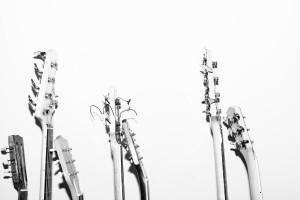
Creating A Strong Social Media Presence
Creating a strong social media presence is essential for musicians to connect with their audience, promote their music, and build a dedicated fan base.
Here are some tips to help musicians establish a powerful social media presence:
-
Choose the Right Platforms: Focus on the social media platforms that align with your target audience and music genre. Facebook, Instagram, Twitter, YouTube, and TikTok are popular platforms for musicians, but it's essential to understand where your fans are most active.
-
Consistency is Key: Be consistent with your posting schedule. Regularly share updates, music releases, and behind-the-scenes content, and engage with your audience. Consistency helps build trust and keeps your fans engaged.
-
Quality Content: Share high-quality content that showcases your music, personality, and creativity. Post a mix of photos, videos, live streams, stories, and written posts to keep your feed dynamic and engaging.
-
Interact with Your Fans: Respond to comments, direct messages, and mentions. Engage with your fans, show appreciation, and make them feel valued. Personal interactions foster loyalty and connection.
-
Tell Your Story: Share your journey as a musician. People love authentic stories, so let your audience in on your creative process, inspirations, and challenges. Being relatable helps build a stronger connection.
-
Use Visuals Effectively: Social media is a visual medium. Utilize eye-catching graphics, album art, and professional photos. For videos, invest in high-quality production when possible.
-
Collaborate with Others: Partner with other musicians or influencers in your genre. Collaborations can help you reach a wider audience and tap into new fan bases.
-
Promote Your Music Strategically: While sharing your music is essential, avoid over-promoting. Balance your content with other engaging posts, and use subtle calls to action for music promotion.
-
Run Contests and Giveaways: Organize contests and giveaways to reward your followers and attract new ones. Offering exclusive merchandise or concert tickets can generate excitement and engagement.
-
Utilize Hashtags: Use relevant hashtags to increase the discoverability of your content. Research popular hashtags in your niche, and create branded ones for your music and events.
-
Track Analytics: Pay attention to social media analytics to understand what content resonates best with your audience. Platforms often provide insights into the reach, engagement, and demographics of your followers.
-
Stay Positive and Respectful: Maintain a positive and respectful tone in your posts and interactions. Avoid engaging in online disputes or controversies that may harm your reputation.
-
Cross-Promote Across Platforms: Link your social media accounts together and promote your presence on one platform through another. For example, share your YouTube videos on Twitter and Facebook.
-
Stay Updated with Trends: Keep an eye on current social media trends and challenges that align with your brand. Participating in these trends can increase your visibility and appeal to a broader audience.
Content Strategy And Posting Tips
Developing a strong and effective social media strategy and content strategy is crucial for musicians to connect with their audience, gain new fans, and promote their music effectively.
Here are some tips to help you create an effective, social media marketing presence as a professional musician yourself:
-
Know Your Audience: Understand who your target audience is - their interests, demographics, and social media habits. Tailor your content to appeal to them specifically.
-
Consistent Branding: Maintain consistent branding across all your social media profiles. Use the same profile picture, cover photo, and bio to establish a recognizable identity.
-
Content Variety: Mix up your content to keep your audience engaged. Share not only your music but also behind-the-scenes footage, rehearsal clips, sneak peeks of upcoming projects, and personal insights.
-
Posting Schedule: Stick to a consistent posting schedule. Regularly update your social media platforms, but avoid overwhelming your followers. Quality over quantity is key.
-
Use Visuals: Social media is highly visual. Use eye-catching images, videos, and graphics to capture attention. Platforms like Instagram and TikTok are particularly visual-centric.
-
Live Streaming and Q&A Sessions: Host live streaming sessions where you can perform, interact with fans, and answer their questions in real-time.
-
Collaborations and Shout-outs: Collaborate with other musicians or influencers to expand your reach. Shout-outs and mentions can introduce you to new audiences.
-
Hashtags and Trends: Utilize relevant hashtags to increase discoverability. Participate in trending topics or challenges to join larger conversations.
-
Engage with Your Audience: Respond to comments, messages, and mentions. Building personal connections with your followers fosters loyalty and a sense of community.
-
Promote Your Gigs and Releases: Announce upcoming shows, releases, and music videos on your social media platforms. Create anticipation among your followers.
-
User-Generated Content (UGC): Encourage your fans to create content related to your music. Repost and share their content, showing appreciation for their support.
-
Exclusive Content for Followers: Offer exclusive content, such as unreleased songs or early access to music videos, to reward your most dedicated followers.
-
Analytics and Insights: Pay attention to social media insights to understand what type of content resonates most with your audience. Use this data to refine your content strategy.
-
Cross-Promotion: Share your social media handles on your website, in your email newsletter, and on other online platforms where your music is available.
-
Be Authentic: Be yourself on social media. Share your journey, struggles, and successes. Authenticity builds a stronger connection with your audience.
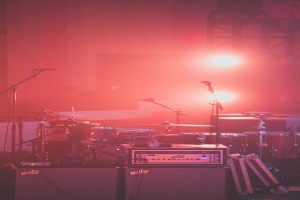
Building And Engaging Your Fanbase
Building and engaging a fanbase is crucial for any musician's success in today's digital age.
With the power of social, media outlets and online platforms, musicians have the opportunity to connect directly with their audience and build a dedicated following.
Here are some tips to help you effectively build and engage your fanbase as a musician:
1. Define Your Brand: Determine what sets you apart as an artist. Establish your unique style, image, and message. Consistency in your brand will help fans recognize you and feel a deeper connection to your music.
2. Utilize Social Media: Be active on various social media platforms, such as Instagram, your Twitter account, Facebook, YouTube, TikTok, etc. on social media tips Share behind-the-scenes content, live performances, updates on upcoming releases, and engage with your fans regularly. Respond to comments and messages to show that you value your audience.
3. Create Quality Content: Consistently release high-quality music and content. Whether it's music videos, lyric videos music blogs, or engaging visuals, compelling content will attract more fans and keep them interested in your work.
4. Collaborate with Other Artists: Collaborations with other musicians and the music industry can expose your music to new audiences and increase your fanbase. Look for artists with a similar style or complementary genre to reach potential fans who may be interested in your new song or music.
5. Live Performances and Tours: Perform live as much as possible, whether it's local gigs, online concerts, or even virtual performances. Live shows help you connect with fans on a personal level and create memorable experiences.
6. Offer Exclusive Content and Merchandise: Provide exclusive content to your loyal fans, such as early access to new songs, behind-the-scenes footage, or limited edition merchandise. This can incentivize fans to support you even more.
7. Engage with Fans Directly: Engage your fans through email newsletters, Facebook posts, fan clubs, or private social media groups. Personalized communication can make fans feel special and valued, strengthening their personal life and their connection to you as an artist.
8. Run Contests and Giveaways: Organize contests and giveaways to reward your fans for their support. This can be an effective way to generate excitement and attract new followers.
9. Leverage Streaming Platforms: - - Upload music or videos of your music to popular streaming platforms like Spotify, Apple Music, SoundCloud, etc. These platforms have a wide audience base and can help you gain exposure.
10. Stay Authentic and Genuine: Fans appreciate authenticity. Share your journey as an artist, your struggles, and your successes. Showing vulnerability and honesty can foster a deeper emotional connection with your fans interact with your audience.
11. Analyze Data and Feedback: Utilize analytics and feedback to understand your audience better. Pay attention to what content resonates the most, which platforms drive the most engagement, and what your fans are saying about your website linking other post content and music.
Avoiding Common Social Media Mistakes
Avoiding common social media mistakes is crucial for musicians looking to effectively promote their music and build a strong online presence.
Here are some tips to help you navigate through social network media as a musician and avoid common pitfalls:
-
Consistency is key: One of the biggest mistakes musicians make is being inconsistent with their social media activity. Regularly post updates, share your music, engage with your audience, and be present. Consistency helps you stay relevant and keeps your followers engaged.
-
Engage with your audience: Don't just treat social media as a one-way street. Respond to comments, messages, and mentions. Interacting with your fans helps build a strong connection and shows that you value their support.
-
Avoid excessive self-promotion: While promoting your music is essential, avoid bombarding your followers with constant self-promotional posts. Instead, focus on providing value to your audience through a mix of entertaining, informative, and behind-the-scenes content.
-
Quality over quantity: Posting frequently is essential, but not at the expense of quality. Make sure your content, including videos, images, and captions, is well-crafted and aligned with your brand as a musician.
-
Know your platform: Each social media platform has its own strengths and audience demographics. Tailor your content accordingly. For example, Instagram may be more visual, while Twitter might be more suitable for engaging in conversations.
-
Be authentic: Your fans follow you because they resonate with your music and personality. Show your genuine self and share personal moments from time to time. Authenticity helps build trust and stronger connections.
-
Stay away from controversial topics: Avoid discussing polarizing or potentially offensive topics that could alienate some of your audience. Keep your focus on music and positive engagement.
-
Utilize visual content: Social media is a visual medium, so make the most of it. Share high-quality images, videos, and album artwork to grab your audience's attention and make your posts more engaging.
-
Avoid spammy practices: Don't buy fake followers or engage in spammy tactics. Building a genuine following takes time, but it's worth it in the long run.
-
Use analytics to your advantage: Most social media platforms provide analytics tools. Use them to gain insights into what content performs well, what resonates with your audience, and when your followers are most active. This data will help you refine your social media strategy.
-
Collaborate with others: Partnering with other musicians, influencers, or content creators can expand your reach and introduce your music to new audiences. Be open to collaborations and cross-promotion opportunities.
-
Have a clear call-to-action: When promoting new music or events, include a clear call-to-action (CTA). Whether it's asking your followers to stream your new single, buy concert tickets, or join your mailing list, a CTA encourages engagement.
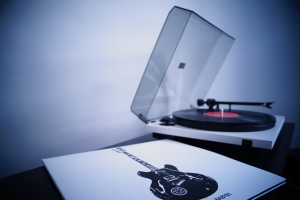
The Wrap-Up
In conclusion, social media has revolutionized the way musicians connect with their audience and promote their music.
By following this complete guide, you can leverage the power of the best social media platforms to amplify your music career, connect with fans, and establish a strong online presence.
Embrace the digital age, be creative, and let your music soar to new heights.
